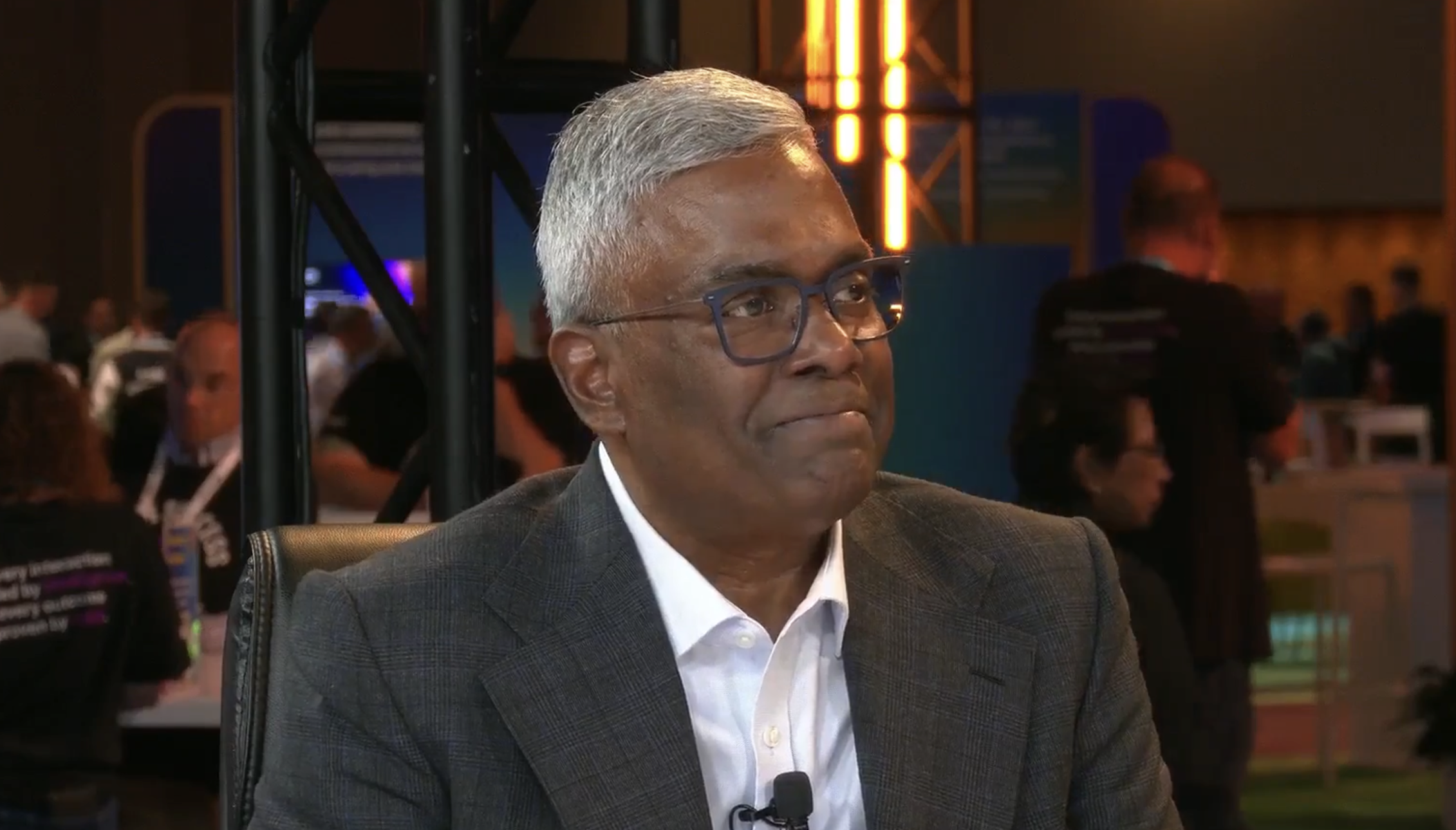Artificial intelligence is ushering in a new era where a robust AI data strategy is paramount. Companies are focusing on building smarter, more connected systems that make data easier to deploy for the next wave of innovation.
TheCUBE’s Christophe Bertrand talks AI, data strategy and where the two meet.
That AI data strategy transition was a major focus of theCUBE’s coverage of NetApp INSIGHT. AI has graduated from powering analytics and high-performance computing to enabling natural, conversational interactions with systems through generative technologies, according to Christophe Bertrand, principal analyst at theCUBE Research.
“Now, we’re talking about agents. Agents that are going to be using data; first point,” Bertrand said. “Secondly, creating a lot of data about their interactions. And, more importantly, making decisions — where causation is going to be very key to monitor.”
During the event, analysts provided commentary about next-generation enterprise storage and AI data strategy. TheCUBE’s coverage also featured interviews with NetApp Inc. executives and industry thought leaders about how enterprises are looking to build intelligence into modern data infrastructure, spanning on-premises and cloud. (* Disclosure below.)
Here are three key insights you may have missed from theCUBE’s coverage:
Insight #1: A strong AI data strategy is uniting infrastructure and innovation.
Far from speculative, the promise of agentic AI sees agents acting as a digital twin for each employee, operating on their behalf, according to George Kurian (pictured), chief executive officer of NetApp. But to function effectively, these agents need specific infrastructure requirements met to control their actions.

NetApp’s George Kurian talks with theCUBE about AI data strategy.
“The first [criteria] is to have high-quality, curated data on which the agents are operating so that they don’t end up with a situation related to drift or poisoning of their results,” he told theCUBE. “The second is they need to be able to have guardrails that are created from actually having a good understanding of the meaning of the data they’re trying to access, as well as the relationships between the entities that they’re trying to access.”
At their peak, application agents will understand business context and employee workflows, Kurian said. These agents will work alongside data agents skilled in accessing, interpreting and summarizing information.
“Those two entities working together will make an agentic workflow happen on behalf of an employee,” Kurian explained.
It’s undeniable that a strong AI data strategy and data-first architecture matter more than ever. As enterprises redesign for speed and reliability, efficiency increasingly follows the data itself, Kurian said.
“One of the things that we’ve observed is data has consistently grown in volume,” he said. “Taking actions at the point that the data is created is far more efficient than trying to copy the data into other places, transform it and then rewrite it back.”
Here’s the complete interview with George Kurian:
Insight #2: AI success depends on unified, intelligent data.
At NetAPP INSIGHT, conversation focused on the idea that real AI impact comes from unifying and activating data through intelligent infrastructure built for scale and efficiency — and with return on investment in mind. This shift is reflected in how leaders are rethinking AI ROI, focusing less on bigger models and more on how effectively data is managed and put to work.
Earlier this month, NetApp outlined its new AI Data Engine, based on Nvidia Corp.’s AI Platform reference design. Advances in AI models have created sophisticated systems that can generate deep, valuable insights, according to Tony Paikeday, senior director of product marketing for AI systems at Nvidia.

Nvidia’s Tony Paikeday and NetApp’s Russell Fishman talk with theCUBE about AI ROI and data management architectures.
“I think what we’re really realizing is that to derive ROI from this, AI needs to be more than great models,” he said. “It needs to have data — data that feeds context — because without context, your AI models [and] your agents cannot understand your customers, your intellectual property, your culture, your unique vocabulary, so data matters more now than ever before.”
Here’s the complete interview with Paikeday and Russell Fishman, senior director of solutions product management at NetApp:
The need for intelligent, unified data systems is reshaping enterprise operations to make them simpler, more scalable and ready for the demands of AI. Guided by a clear AI data strategy, data and storage experts are now leading the transformation, turning operational challenges into opportunities for innovation, according to Syam Nair, executive vice president and chief product officer at NetApp.
“With such tools and integrated with the ecosystem — including open-source ecosystem partners — customers are able to drive transformation, focusing on what their business outcomes are, rather than on the complexity of the infrastructure,” Nair said.
Here’s the complete interview with Syam Nair:
That focus on intelligent data infrastructure also comes to life in the world of sports, with the National Football League using AI and resilient data systems to manage massive volumes of information in real time. Data is one of the most strategic assets that the NFL has, according to César Cernuda, president of NetApp.
“Many of the AI projects today fail because you have not really prepared your data for AI. I think why we’ve been working with the NFL is [to make] sure that the data is prepared — that we really have a strategy and a differentiation there,” Cernuda said.
Here’s the complete interview with César Cernuda and Aaron Amendolia, deputy chief information officer of the NFL:
Insight #3: No matter the context, AI leadership always starts with secure foundations and solid data hygiene.
Regions might differ, but the rules do not. Around the world, enterprises and governments alike are realizing that winning with AI depends on strong data foundations — not the other way around. In the Asia-Pacific region, that vision is taking shape through government-backed AI ecosystems designed to accelerate adoption while balancing data sovereignty and local innovation.

Andrew Sotiropoulos talks with theCUBE about Asia-Pacific market dynamics and government-backed AI
In several economies, governments are taking a more active role in accelerating AI adoption. Countries such as Korea, Taiwan, and Japan are building ecosystems designed to fast-track AI growth, according to Andrew Sotiropoulos, senior vice president and general manager for Asia-Pacific at NetApp.
“Government has an important role to play, especially around data sovereignty and supporting neocloud growth adoption in each of the countries,” Sotiropoulos said.
Here’s the complete interview with Andrew Sotiropoulos:
Across other regions — Europe, the Middle East, Africa and Latin America — the conversation remains focused on turning from policy to practice, as enterprises look to building robust data strategies that can turn information sprawl into lasting business value. A company’s true value still lies in its own data, and without a clear strategy, its systems won’t be sustainable over time, according to Giovanna Sangiorgi, senior vice president and general manager, EMEA and LATAM at NetApp.
“The biggest opportunity for every company at the end — it comes from their data,” she said. “Not everyone has already defined their data strategy. Without a clear data strategy [or] infrastructure, the data infrastructure is not necessarily fit for its purpose.”
Here’s the complete interview with Giovanna Sangiorgi:
In the end, true AI leadership begins with secure, resilient data foundations that enable innovation and trust at scale. Today’s AI-driven environment demands secure, multi-tenant systems with seamless data mobility, allowing graphics processing units to access information safely across unified on-premises and cloud environments, according to Sandeep Singh, senior vice president and general manager of enterprise storage at NetApp.
“There’s a ton of innovation that’s happening in the public cloud tied to AI, and yet customers’ data is sitting on-prem, and you need to be able to combine those,” Singh said while speaking with theCUBE. “AI thrives on data, but data has to be fundamentally secure.”
AI gives organizations the power to increase productivity and create new business models and revenue streams. But at its core, enterprise AI remains a data challenge, according to Singh.
“Data is the fuel for AI. As customers are looking at starting on their AI journey, the first challenge becomes what is the right infrastructure to support their AI initiatives?” Singh said. “But very quickly, it’s about ‘How do I get my data AI-ready?’ This is where customers need not only the performance and the scale at the infrastructure level: They need all of the enterprise-grade capabilities.”
Here’s the complete interview with Sandeep Singh:
To watch more of theCUBE’s coverage of NetApp INSIGHT, here’s our complete event video playlist:
https://www.youtube.com/watch?v=videoseries
(* Disclosure: TheCUBE is a paid media partner for the NetApp INSIGHT 2025 event. Neither NetApp, the sponsor of theCUBE’s event coverage, nor other sponsors have editorial control over content on theCUBE or News.)
Photo: News
Support our mission to keep content open and free by engaging with theCUBE community. Join theCUBE’s Alumni Trust Network, where technology leaders connect, share intelligence and create opportunities.
- 15M+ viewers of theCUBE videos, powering conversations across AI, cloud, cybersecurity and more
- 11.4k+ theCUBE alumni — Connect with more than 11,400 tech and business leaders shaping the future through a unique trusted-based network.
About News Media
Founded by tech visionaries John Furrier and Dave Vellante, News Media has built a dynamic ecosystem of industry-leading digital media brands that reach 15+ million elite tech professionals. Our new proprietary theCUBE AI Video Cloud is breaking ground in audience interaction, leveraging theCUBEai.com neural network to help technology companies make data-driven decisions and stay at the forefront of industry conversations.








